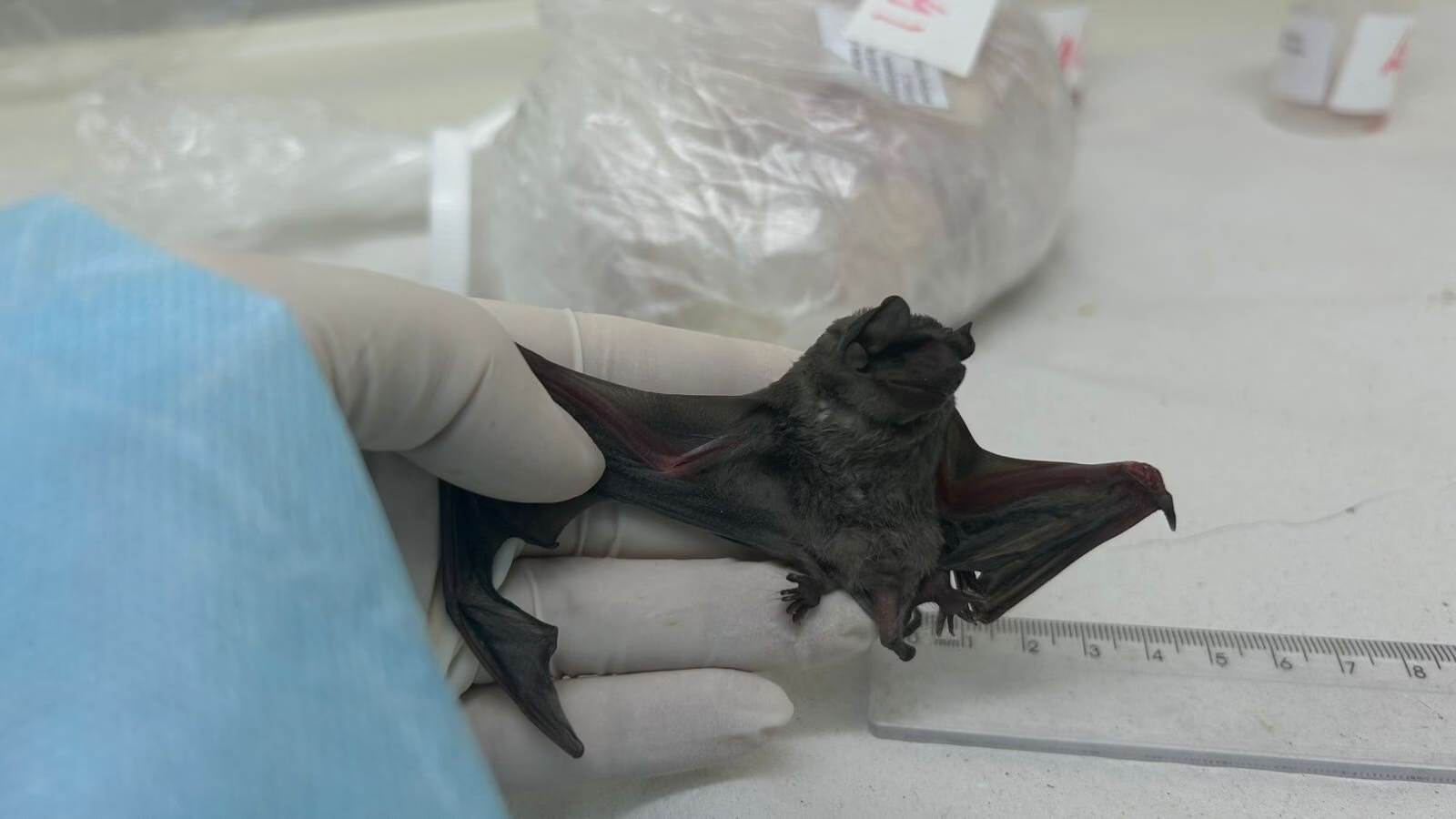March 19, 2025 – Scientists in Brazil have discovered a new coronavirus in bats, which shares genetic similarities with the Middle East respiratory syndrome (MERS) virus. However, its risk to humans remains unclear, researchers say.
Key Findings
- The virus was detected by researchers from São Paulo, Ceará, and Hong Kong University (HKU).
- Genetic analysis shows 72% similarity with the MERS-CoV genome.
- The spike protein—which helps viruses attach to host cells—has a 71.74% similarity with MERS-CoV.
Potential Risk to Humans
- While there is no confirmation that the virus can infect humans, scientists detected elements in its spike protein that suggest possible interaction with human cell receptors.
- Further high-biosecurity lab tests are planned in Hong Kong to assess human infection risks.
Study Details
- Researchers screened 423 oral and rectal swabs from 16 bat species in Fortaleza, northeastern Brazil.
- They found seven coronaviruses in five of these samples.
- The virus appears to be genetically diverse, showing evidence of recombination (genetic mixing and evolution).
Why This Matters
- Bats are known reservoirs of coronaviruses, and continuous surveillance is crucial to monitor potential cross-species transmission.
- The discovery underscores the global need for pandemic preparedness and early detection of emerging viruses.
Would you like updates on the latest lab findings or global virus surveillance efforts?



